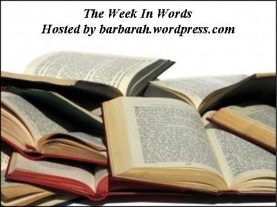Jon Meacham’s introduction to American Gospel (link is to my review) was sufficient to give me fodder for an entire post of quotes. The rest of the book proved to be equally rife in thought provoking quotes.
I present a brief selection (since I probably ought not retype the entire book!)
“Winthrop’s text [‘City upon a hill’] is frequently used as a source of reassurance about our exceptional national destiny, yet we should not be so quick to think that an ancient phrase of his can help us smooth over the rougher passages of our history, or that telling ourselves we are a special people entitles the country or any element within it to impose its will on others under the cloak of divine sanction.”
This reminds me of…well…Calvinism…actually. You see, Calvinists should be the most humble people in the world. After all, we affirm that we have been saved by absolutely no merit or choice of our own. Likewise, if America has indeed been called to be a city on a hill (although, of course, that passage refers to disciples of Christ, not to America)–but if America had been called to be a city on a hill, that should be an incredibly humbling thing. To be chosen by God to be on display? Surely not because we are great, but because He has some purpose to work through us. This ought drive us to our knees, to humility, that we might live for and fulfill His purposes–not that we should proudly consider him to have given His stamp of approval to our purposes.
“Williams was mostly interested in saving the church from the state, not the state from the church. The world was the world; the kingdom of God was something else entirely. ‘Render to Caesar the things that are Caesar’s,’ Jesus said, ‘and to God the things that are God’s.’ Williams called for a ‘hedge or wall of separation between the Garden of the church and the wilderness of the world.’ Note that Williams was not planting a hedge or building a wall to protect the state, but rather religion, believing that the ambitions and vices of men could pervert the church, turning faith into a means of temporal power.”
I think Williams and Greg Boyd would have gotten along together well :-)
“Even the preachers of the day saw the wisdom of keeping Williams’ garden and wilderness separate. The reasoning was rooted in both conviction and in pragmatism: church and state would be more powerful apart than they would have been if joined together.”
A very interesting statement to be sure. Are church and state more powerful apart than together?
“‘The magistrate is to govern the state, and Christ is to govern the church,’ said Reverend Samuel Stillman in a 1779 sermon to the Supreme Court of Massachusetts. ‘The former will find business enough in the complex affairs of government to employ all his time and abilities. The latter is infinitely sufficient to manage his own kingdom without foreign aid.’ The religious knew, too, that to ally themselves with the powers of the temporal world might result in momentary gain, but only momentary.
I love that last line of Stillman’s: “The latter [Christ] is infinitely sufficient to manage his own kingdom without foreign aid.” Amen!
“‘[In] allying itself with a political power,’ Tocqueville said, ‘religion increases its power over some and loses the hope of reigning over all.’…He was not speaking theoretically, but from experience and history. ‘In Europe, Christianity has permitted itself to be intimately united with the powers of the earth,’ he said. ‘Today these powers are falling and it is almost buried under their debris.'”
Thinking of the fate of Christianity in the former Holy Roman Empire and both its Catholic and Protestant successors, I am inclined to think that this historical argument is a great one against the marriage of church and state.
“[Franklin] did not mean to imply, he said, that ‘our General convention was divinely inspired when it formed the new federal Constitution….Yet I must own that I have so much faith in the general government of the world by Providence, that I can hardly conceive a transaction of such momentous importance…should be suffered to pass without being in some degree influenced, guided, and governed by that omnipotent, omnipresent, and beneficent Ruler.‘”
If God is indeed sovereign and sovereignly orders the world according to His will, then America is what it is because God willed it. But this is not reason for boasting, as though God places His stamp of approval on all that America does. Rather, it should be reason for trembling, since the same God who raises nations can also fell them in accordance with His will.
“If the first shall be last and the last first, then who are Christians to exert power over others by the sword or the purse or the polling place?”
An utterly fascinating question–with an incredibly complex answer (Our book club over The Myth of a Christian Nation spent ten or so weeks discussing that question–and I’m not sure we managed to come to any definitive conclusion.)

